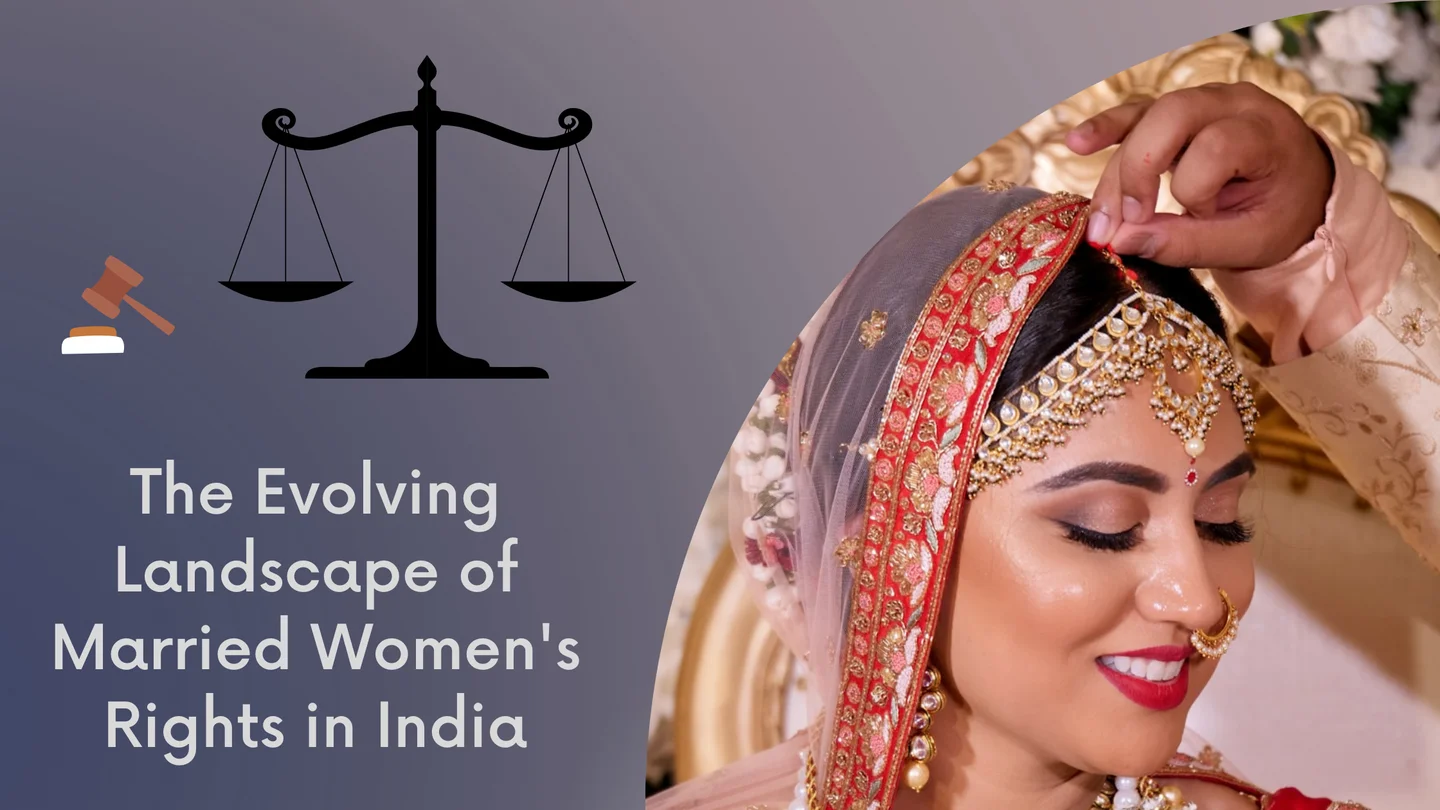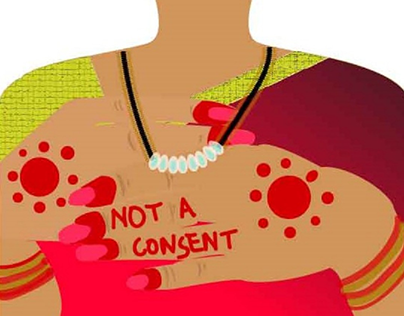The Evolving Landscape of Married Women's Rights in India
5 minuteRead

In the vast tapestry of India's history, women have played a profound yet often underappreciated role. From ancient times to the modern era, their contributions have been integral to the fabric of society. However, the path to gender equality has been fraught with challenges, rooted in deep-seated traditions, cultural norms, and systemic biases. Yet, amidst the complexities, a powerful transformation is underway, as women across India are breaking barriers, shattering glass ceilings, and reshaping the narrative of women's rights.
The evolving landscape of women's rights in India is a captivating tale of resilience, courage, and the indomitable spirit of change. It is a story that weaves together narratives of triumph, ongoing struggles, and the promise of a more inclusive future.
As a cornerstone of our society, marriage is more than just a union between two individuals; it binds together families. In India, this sacred union is more than just the union of two hearts—it symbolises a cherished social institution, upholding a civilised social order. Within the realms of matrimony, women hold significant rights and privileges that deserve our attention and understanding. In this article, I aim to shed light on the essential rules and rights that every married woman in India should be aware of, ensuring a comprehensive overview of the rights bestowed upon wives in our country.
Legal Rights of Married Women in India
The wife is endowed with numerous marriage rights by the Constitution, and here are some significant ones:
1. Right to live with dignity and self-respect
When a woman gets married, she has the right to live with dignity and honour, just like her husband and in-laws. She should be free from any kind of torture or mistreatment. Article 21 of the Indian Constitution guarantees women the right to live with dignity. However, it's important to note that what dignity and respect mean can vary from person to person. Indian laws, including those protecting the rights of married women and Article 21 of the Indian Constitution, aim to safeguard the right to live with dignity. It's worth mentioning that everyone's understanding of dignity may differ.
2. Right to a committed relationship
In Hindu marriage, a man is obligated to remain faithful to his wife and not engage in relationships with other women unless he is legally divorced. If a husband is found to be in a relationship with another woman, he can be charged with adultery under section 497 of the Indian Penal Code. In such cases, his wife has the right to file for divorce on the grounds of his extramarital involvement with another woman.
3. Right over her body
Women have complete ownership over their own bodies, which means they have the right to make decisions about their health and even choose to have an abortion if they wish. However, when it comes to the issue of marital rape, there is ongoing debate and confusion. While marital rape has been criminalized in 150 countries worldwide as of 2019, the situation is different under the Indian Penal Code (IPC). The IPC considers non-consensual intercourse with a wife aged between 12 and 15 years as marital rape, but for wives above 15 years of age, it is not classified as rape.
However, in 2017, the Supreme Court in the Independent Thought v. Union of India case, and in 2022, the High Court in the RIT Foundation v. Union of India case, ruled that the exception allowing marital rape of minors between the ages of 15-18 was unconstitutional. This means that the age limit in the exception now needs to be read as 18 years. It's important to note that currently, there are no criminal penalties for marital rape when a wife is over 18 years old.
Nonetheless, a woman's right to her own body also includes the freedom to refuse engaging in unnatural sexual activities with her partner. While the topic of marital rape remains complex and controversial, it is crucial to respect and uphold a woman's autonomy and bodily integrity within the institution of marriage.

Source: Kr. Vivek Tanwar, Advocate
4. Rights Against Domestic Violence
Domestic violence is a serious issue in Indian households, and it has sadly intensified during the COVID-19 lockdown. However, married women in India have legal rights to seek protection. If a woman experiences violence within her marriage, it is important to reach out to domestic violence advocates immediately for assistance. The Indian Penal Code also addresses the issue of cruelty inflicted by a husband or relatives, and it serves as grounds for divorce or other legal remedies to address the violence and cruelty faced by women. It is crucial to stand against domestic violence and ensure the safety and well-being of married women in India.

5. Right to Child Maintenance
In a marriage, both the husband and wife have a duty to provide for their minor child. If the wife is unable to earn a living, it becomes the husband's responsibility to offer her financial support. This ensures that the child's needs are met and that the family unit remains stable.

Final Thoughts
The rights mentioned above are just a few examples of the numerous rights granted to women in India after marriage. While there are various legislative safeguards in place, it is crucial to emphasise the need for effective implementation mechanisms. It is essential that women are aware of their rights and can confidently exercise them whenever needed, without any hesitation. By ensuring proper implementation, we can create an environment where women can fully utilise their rights and experience the empowerment we deserve.
Write, Record and Answer! Consume Unlimited Content! All you need to do is sign in and its absolutely free!
Continue with one click!!By signing up, you agree to our Terms and Conditions and Privacy Policy.











